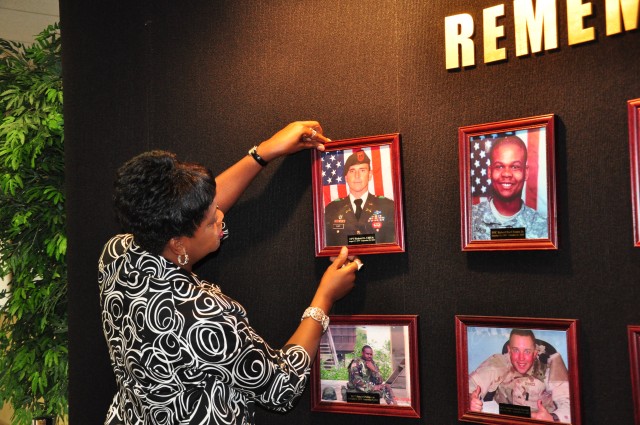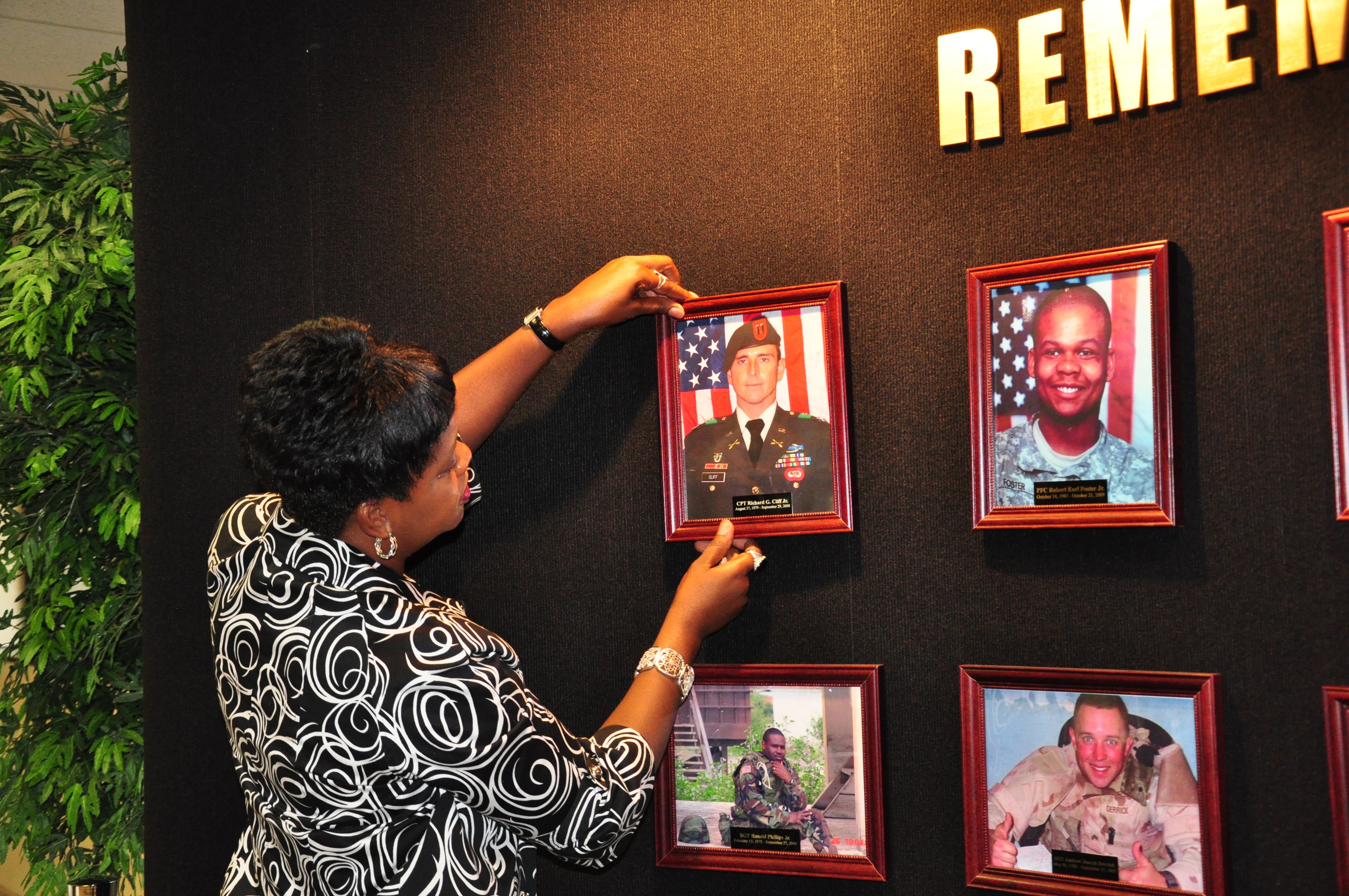FORT JACKSON, S.C. -- Since 2001, nearly 400 active duty, Reserve and National Guard Soldiers with roots in South Carolina have died either in combat or by non-hostile means. To date, less than half of their surviving family members are actively enrolled in the Army's Survivor Outreach Services program.
Leslie Smith, Survivor Outreach Services support coordinator here at Fort Jackson, hopes to change that.
Smith said she wants the survivors of South Carolina's fallen Soldiers to know that they haven't been forgotten and that they will always be members of the Army family.
"I don't want any survivors to think we don't care about them," Smith said. "Because we really do care.
"There are so many more survivors that we want to reach out to, but we have to know where they are," she said. "It's hard to find people if you don't know where they've relocated."
That's why she and fellow coordinators are asking that Fort Jackson community members help get the word out about the program, and encourage survivors to contact them to take advantage of SOS services.
The SOS program provides short- and long-term case management, offers benefits counseling, financial planning and legal assistance, as well as other services specific to individual family needs for as long as the family needs the support.
"Upon the death of anyone, there's this enormous amount of paperwork that the family members need to sort through," said Christina Clark, SOS financial counselor. "And one of the biggest things that happens is that the family members will get a huge chunk of money at once, which is essentially a portion of replacement income for the (Soldier's) lifetime.
"It's hard to make sound decisions in a normal situation, but when you add the burden of grief, it's even more difficult. We're here to help the family members figure out how to preserve that capital and use it wisely."
Megan McCullough, SOS support coordinator for Reserve families in South Carolina and Georgia, said the process may be even more complicated for surviving families of Reserve and Guard Soldiers, who might not know what benefits they are entitled. Those families, she said, are often the ones who fall through the cracks.
"So those survivors are the ones who we try to reach out to who may not know how to apply for benefits like SGLI, or how to close their spouses' bank accounts. Or perhaps they're living in a very small town, where the community doesn't understand what they're going through," McCullough said. "We're trying to ensure they have a support structure. We want to link them to available community resources and to other families in similar circumstances who can lend them emotional support."
Within the SOS, two support groups hold monthly meetings to help meet the needs of surviving spouses as well as parents. The spouse support group's next meeting is Aug. 20, while the parent support group meets Aug. 27.
And even though the SOS coordinators are focusing on recruiting families of Soldiers who have died since 2001, they said the program is available to eligible family members, regardless of when the death occurred or how the Soldier died.
For more information about Survivor Outreach Services, or to attend support group meetings, contact Leslie Smith at 751-4867.


Social Sharing